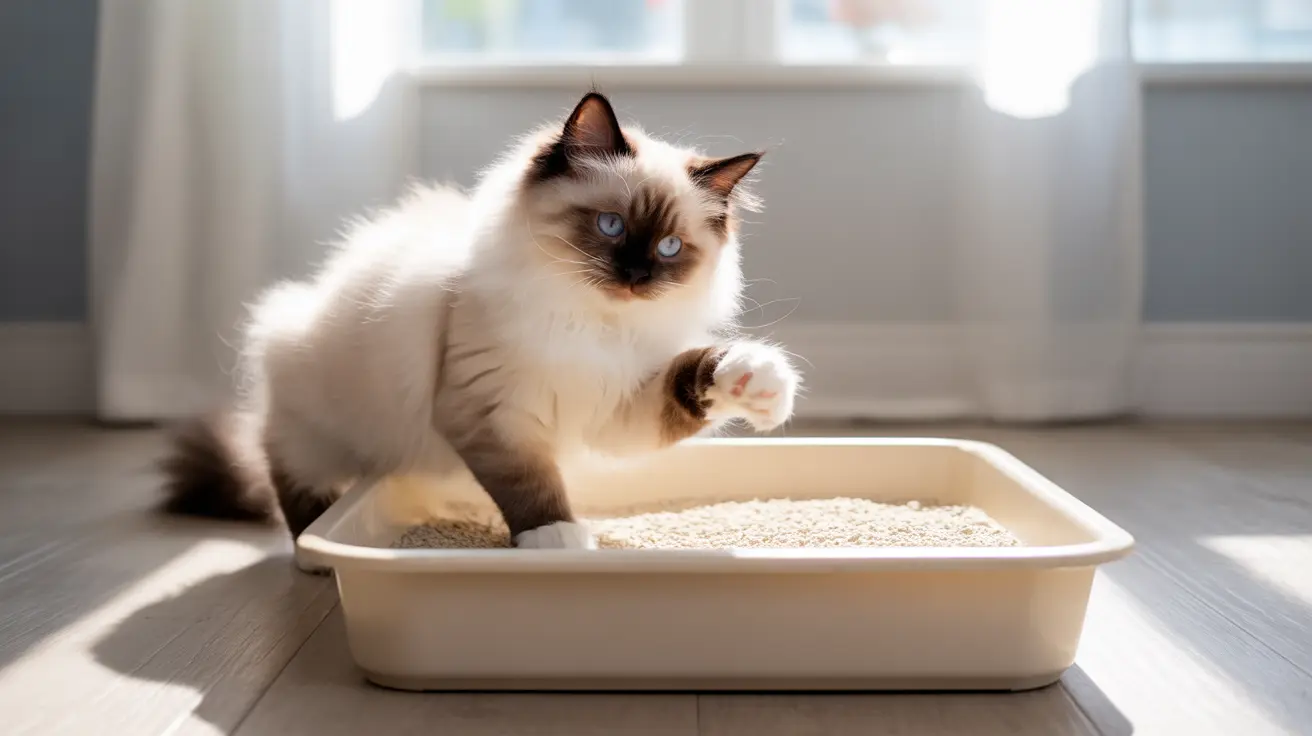Introduction
Diatomaceous earth cat litter represents a natural, eco-friendly alternative to traditional clay-based options. This unique litter, derived from fossilized algae, offers pet owners a safe and effective solution for their cats' bathroom needs. As more pet parents seek sustainable and health-conscious products, understanding the benefits and proper use of diatomaceous earth cat litter becomes increasingly important.
In this comprehensive guide, we'll explore everything you need to know about diatomaceous earth cat litter, from its natural composition to its practical applications and maintenance requirements. We'll also examine how it compares to other litter options and address common concerns about its safety and effectiveness.
What is Diatomaceous Earth Cat Litter?
Diatomaceous earth cat litter is made from finely crushed fossils of microscopic diatoms, ancient aquatic algae that left behind silica-rich skeletons. This natural mineral substance contains predominantly amorphous silica, making it both safe and effective for cat litter applications. The unique microscopic structure of diatomaceous earth creates countless tiny pores that excel at moisture and odor absorption.
Benefits and Features
Superior Absorption Properties
Diatomaceous earth cat litter can absorb up to 1.5 times its weight in moisture, effectively trapping liquids and odors within its mineral pores. This remarkable absorption capacity means less frequent litter changes and better odor control, particularly beneficial for multi-cat households.
Natural Odor Control
Unlike artificial deodorizers found in many commercial litters, diatomaceous earth naturally controls odors through its porous structure and moisture-locking capabilities. This makes it an excellent choice for environmentally conscious pet owners who prefer to avoid synthetic fragrances and chemicals.
Safety and Health Considerations
When choosing diatomaceous earth cat litter, it's crucial to select food-grade products specifically designed for pet use. Food-grade diatomaceous earth contains less than 1% crystalline silica, making it safe for cats and humans alike. The low-dust formula reduces respiratory concerns, making it particularly suitable for sensitive cats or those with existing respiratory issues.
Maintenance and Usage Tips
While diatomaceous earth cat litter doesn't clump like traditional clay litters, its maintenance is straightforward. Regular removal of solid waste and periodic complete litter replacement ensures optimal performance. Most users find that the litter bed needs changing every 3-4 weeks, depending on usage patterns and the number of cats in the household.
Minimizing Tracking
To reduce tracking around your home, consider placing a litter mat outside the box to catch any particles that might stick to your cat's paws. High-sided litter boxes can also help contain the litter more effectively.
Environmental Impact
As a natural mineral product, diatomaceous earth cat litter offers significant environmental advantages over synthetic alternatives. It's biodegradable and safe for landfill disposal, making it an environmentally responsible choice for eco-conscious pet owners.
Frequently Asked Questions
What are the main differences between diatomaceous earth cat litter and silica cat litter?
Diatomaceous earth is a natural mineral product made from fossilized algae, while silica litter is synthetic and made from sodium silicate. Diatomaceous earth absorbs 1.5 times its weight in moisture, while silica can absorb up to 40 times its weight. Both are non-clumping but offer excellent odor control through different mechanisms.
Is diatomaceous earth cat litter safe for cats, and how does it affect their health?
Food-grade diatomaceous earth cat litter is completely safe for cats. It contains minimal crystalline silica, produces little dust, and is non-toxic if accidentally ingested in small amounts. Its natural composition makes it particularly suitable for cats with sensitivities to artificial fragrances or chemicals.
How effective is diatomaceous earth cat litter at controlling odor compared to silica litter?
Diatomaceous earth cat litter provides excellent natural odor control through its porous structure and moisture-absorption capabilities. While silica litter may absorb more liquid, diatomaceous earth effectively controls odors for several weeks without requiring artificial fragrances.
How should I maintain and clean a litter box using diatomaceous earth cat litter?
Remove solid waste daily and stir the litter to promote even absorption. Replace the entire litter bed every 3-4 weeks or when you notice decreased odor control. Since it doesn't clump, spot cleaning focuses on solid waste removal rather than clump scooping.
What environmental impacts should I consider when choosing between diatomaceous earth and silica cat litter?
Diatomaceous earth is a natural, biodegradable mineral product that's environmentally friendly and safe for landfill disposal. While silica litter is non-toxic, it's synthetically produced and may have a larger environmental footprint. Diatomaceous earth is often considered the more sustainable choice for environmentally conscious pet owners.
Conclusion
Diatomaceous earth cat litter offers a natural, effective, and environmentally responsible alternative to traditional litter options. Its combination of superior odor control, safety features, and eco-friendly properties makes it an excellent choice for conscious pet owners. While it may require different maintenance routines than clumping litters, its benefits often outweigh any adjustments needed in care routines.






